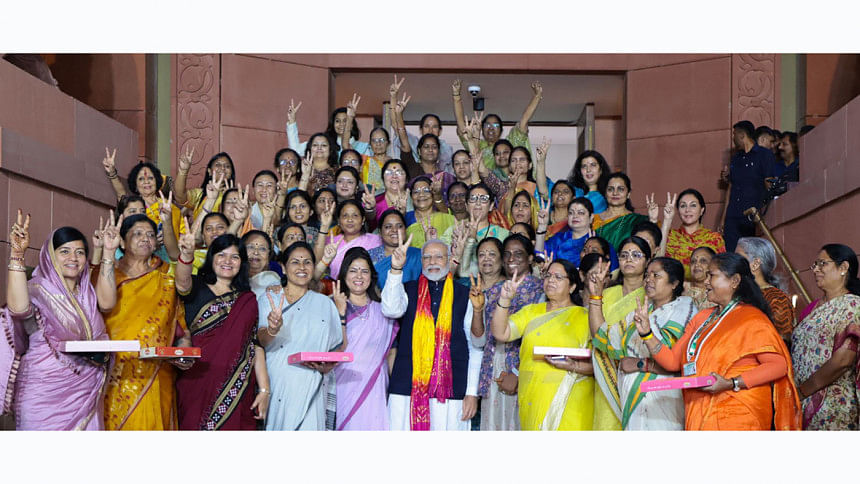33% reserved seats for women: Upper house of Indian parliament approves bill

The Indian parliament has given approval to the historic Constitution (128th Amendment) Bill-2023, providing for the reservation of 33 percent of seats in Lok Sabha and state legislative assemblies for women.
The historic bill, cleared last night ahead of the general elections due early next year, secured 214 votes in favour and none against in the Rajya Sabha. There was also no abstention during the voting, reports our New Delhi correspondent.
The bill will now go to President Droupadi Murmu for her approval, which is a formality so that it turns into law.
Had the honor of meeting our dynamic women MPs who are absolutely thrilled at the passage of the Nari Shakti Vandan Adhiniyam.
It is gladdening to see the torchbearers of change come together to celebrate the very legislation they have championed.
With the passage of the Nari… pic.twitter.com/et8bukQ6Nj
— Narendra Modi (@narendramodi) September 21, 2023
Earlier, the law was first cleared in the Lok Sabha, the lower House, after which it was passed unanimously in the Rajya Sabha, the upper House.
Prime Minister Narendra Modi, whose party hopes to get a boost from the bill's passage in parliament, termed the bill's parliamentary approval as "a defining moment in our nation's democratic journey".
Thanking the lawmakers of the Rajya Sabha, he said, "Such unanimous support is indeed gladdening."
The bill, he added, "ushers in an era of stronger representation and empowerment for the women of India. This is not merely legislation; it is a tribute to the countless women who have made our nation. India has been enriched by their resilience and contributions."
Later, women members of parliament met Modi to express their happiness, after which the prime minister posted on X, formerly Twitter, "Had the honor of meeting our dynamic women MPs who are absolutely thrilled at the passage of the bill.
"It is gladdening to see the torchbearers of change come together to celebrate the very legislation they have championed," he added.
The women's reservation bill is unlikely to be put into operation before the 2024 general elections as certain time-consuming procedural matters like fresh demarcation of Lok Sabha and assembly seats and a new census need to be completed.
A similar bill was passed by the Rajya Sabha in 2010 but could not be taken up in the Lok Sabha which got dissolved in 2014 leading to lapsing of the legislation.

 For all latest news, follow The Daily Star's Google News channel.
For all latest news, follow The Daily Star's Google News channel. 



Comments